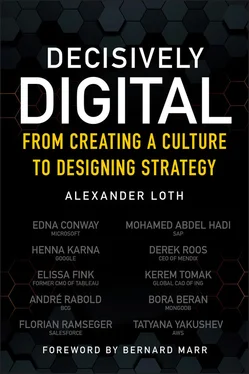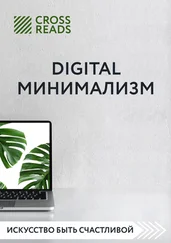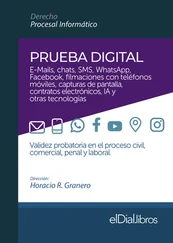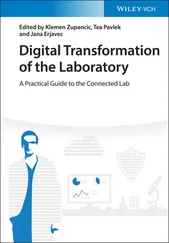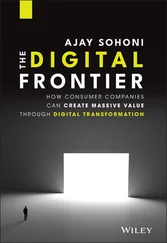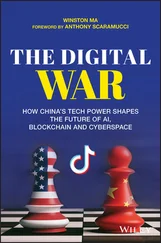Managers should ask themselves whether they can apply the Japanese manufacturing principle of the Ando cord. In car factories this is a safety cord that any employee is allowed to pull to stop a production line if they think there is a problem. The tool in itself is secondary. It is the culture that it fosters — one where anyone's input is taken seriously, no matter their pay grade. If you want to use the digital transformation to grow your business, you need every input that you can get.
Second, because it is not enough to just optimize, you will want to keep some creative heads around too. People who can come up with innovative ideas that will help you leapfrog ahead, rather than just change incrementally. That means you need to learn to put up with their quirks and antics. In an effort to treat everyone the same, creative people are often pushed out of organizations, and teams become too homogenous in their thinking.
Third, empower your IT and subject-matter experts to come up with solutions together. When I worked at a business school, we asked the IT department to set up a form where students who wanted to change courses could put their names on a waiting list. Since IT didn't have time to help, we secretly proceeded to set up a form using an off-the-shelf SaaS tool instead. This sort of self-service culture should be fostered, not forbidden. But you still want IT to vet and manage the different solutions; you can't have everyone rebel against IT, fun as it was for us back then.
Alexander: Returning to the socioeconomic consequences of the digital transformation, 10 years ago you predicted that cloud applications like Google Docs and Microsoft Office 365 would change the way we work. You argued that knowledge workers could be more geographically mobile and less dependent on corporate employers, because they could own the tools of their trade — their laptops. Has this become a reality, and where do you see this trend going in the next 10 years?
Florian:Business applications in the cloud have absolutely made remote collaboration so much easier. I have worked with many geographically distributed teams and with tools like Google Docs, Slack, and WebEx, by and large, collaboration was as good as, if not better than, it was in in-person teams.
What hasn't happened yet is that all knowledge workers became freelancers, partly because of IT security concerns that prevent people from bringing their own devices to collaborate. The bigger issue, though, is that in many countries being a full-time employee is a requirement of becoming part of the social safety net. The US, where health insurance premiums and retirement fund contributions are paid by employers, is an extreme example.
All that said, the number of freelancers seems to be going up. In the US, 35 percent of the workforce has done freelance work in 2019, with 28 percent of the workforce doing it full-time — that is up from 17 percent in 2014. 3
Alexander: Can a universal basic income (UBI) help here?
Florian:If implemented well, it could make it a lot easier for people to transition back and forth between employment, freelance work, educational breaks, and, yes, even time for self-discovery.
But it is not enough to simply give people EUR 1,000 a month. It is about changing the mindset that being part of the social net requires you to be an employee. It is about making sure that healthcare and retirement plans are continuous as you transition between different life stages — or even from one employer to the next — and that people who are stuck and can't find work get the necessary help.
The old model for the social safety net in Western societies, where transfer payments such as pensions and unemployment benefits are conditional on having held a “proper” job, worked for the industrial age, but the digital age might require a new framework.
Our politicians would love to see more tech startups in Europe. We need to provide people the flexibility required for modern work and life if we want the next Google to come from here.
Alexander: Whether it is to finance a UBI or to pay for unemployment benefits, some people have suggested that we tax machines to compensate those who lose their jobs as a result of the digital transformation. What do you think about that?
Florian:Taxing machines and technology would be the wrong approach. All long-term economic growth ultimately comes from the fact that machines make us more productive and that we can have ever more specialized division of labor. We can afford the things that make our lives better and easier, because technology enables specialists to produce them for us, and the market allows us to trade them in exchange for our own services in the domains that we are good at.
Alexander: Today, many knowledge workers spend time analyzing data, creating slides, and writing emails. In the next 10 years, what do you think our work will look like?
Florian:It will be more data analysis, fewer emails, and about the same amount of time creating slides.
The more data analysis part is probably obvious. We will be inundated in data, whether we like it or not. The different steps of the analysis process will be more and more automated and commoditized so that even people with very limited experience in data analysis will be exposed to it.
The fewer emails part is perhaps wishful thinking, but I am hopeful that other forms of digital communication will replace it. Tools like Slack, Chatter, Quip, and Teams are great if used correctly.
Their greatest value is that they allow us to organize conversations around topics or projects, whereas emails are organized by who sends what to whom (and who is left off the recipient list). The benefit of that cannot be overstated, as it creates true transparency and free knowledge transfers within organizations. This only works, however, if people are intentional about this. I have seen it happen that a social collaboration tool was implemented and then employees used it to directly message their colleagues, just like they would with email.
One thing I can see happening is that we will use data dashboards more often in meetings rather than slide decks with static charts. Charts and figures are often the cues for further questions. My colleague Andy Cotgreave likes to say that the quality-control method of asking “five whys,” as pioneered by Sakichi Toyoda at Toyota, is what one should use when using data to answer questions: don't stop until you have asked “why?” five times. 4 Being able to interact with data during meetings allows one to go down such routes of interrogation.
Alexander: Do you think that the automation of processes and the commoditization of digital tools will mean that we will have much less work to do? Would it be an option to reduce work time, let's say to three days per week, to avoid a loss of jobs?
Florian:Individual tasks can take up less time when new digital tools are introduced, but it is a fallacy to think that the overall amount of work will decrease as a result. There is no fixed stock of work that needs to be done. Instead, when new tools help us increase our productivity, we, as a society, tend to produce more. Hence the effect on economic growth I mentioned earlier. Also, don't forget people have to build these tools.
There are two caveats to this answer, though. First, individual jobs will fall away. Companies used to have typists who would type up the letters that their bosses dictated for them on a voice recorder. With the advent of the personal computer, workers can now write their own letters, and as a result many typists lost their jobs. This process will repeat itself continually as new technologies are adopted to automate tasks. Therefore, our education and welfare systems are crucial. They can ensure that people have the right skills for the right jobs and that they can transfer from those jobs that have become obsolete into those that society requires.
Читать дальше
